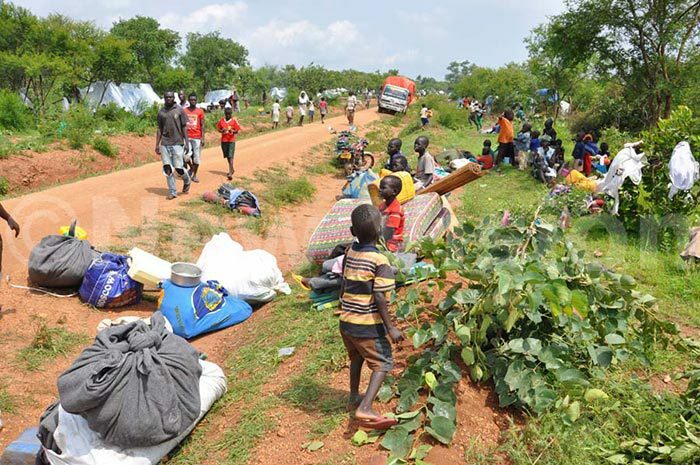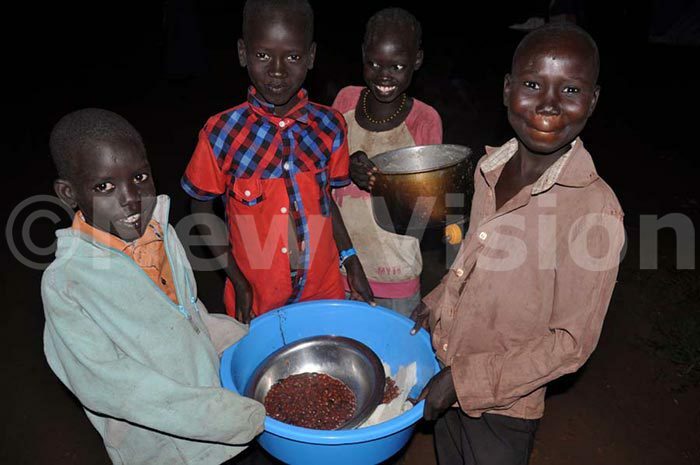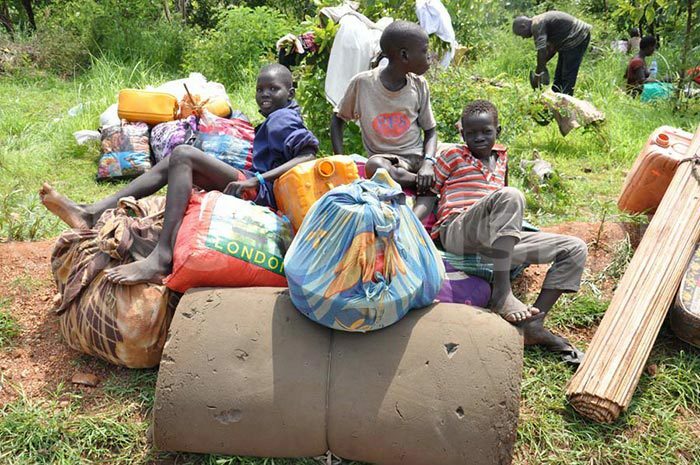The plight of the unaccompanied refugee minors in Yumbe
Together with another neighbour, the children waded through irritating grass, heading to Waligo, a border town in Kitgum district, about 36km from their home in Owiny Kibul.
It was on a Saturday afternoon when armed men surrounded 14-year-old Robert Komakech's neighbourhood. Sensing danger, he quickly grabbed his two brothers and three sisters' hands and they fled.
Together with another neighbour, the children waded through irritating grass, heading to Waligo, a border town in Kitgum district, about 36km from their home in Owiny Kibul.
His weary eyes, grubby feet and dusty clothes tell of a life left in ruins by the insurgence in South Sudan.

However, luck was on their side as they walked to the border were they were rescued to Elegu Reception Centre in Adjumani district in northern Uganda. After a few days they were taken to Bidibidi camp in Yumbe district were they are living as unaccompanied refugee minors.

Four months since his brother's death, Komakech, with a neighbour's help, was taking care of his siblings.
"Before fleeing to Uganda two weeks ago, we worked in maize gardens to raise income. Currently, I spend my day roaming through the vast camp and queuing for food," he says.
Komakech is among the many of the unaccompanied minors in many refugee camps.
Following the violence that broke out in South Sudan on July 8, nearly 90,000 refugees have fled to Uganda and more than 85% are women and children.
An unaccompanied minor is a child without the presence of a legal guardian. This term is used in immigration law and in airline policies. The specific definition varies from country to country and from airline to airline.
Every day, about 10 gigantic buses wait by the docking site at Laropi, a ferry route connecting Moyo and Adjumani districts. These carry about 200 refugees each from Nyumanzi transit centre in Adjumani to Bidibidi refugee camp in Yumbe district daily.
There are some 20,000 South Sudan refugees living in Bidibidi currently. Scores of destitute sun-scorched and tired looking, men and women, struggle to board in view of a peaceful and better life.
The sight of suckling and crying infants is heart-wrenching. Driven for more than 100km, they finally arrive in Bidibidi, drenched in sweat and caked in dust.
In the Meantime, vegetation is destroyed to create space to accommodate new arrivals. It is these camps that the new arrivals will call home, uncertain of whether they will ever make it back to South Sudan.
Komakech and his siblings David Abongo, 12; Nancy Ayet, 8 and Moses Allah, 6, are now living in Bidibidi , one of the newly created 21 refugee settlements.
Allah's lips are chapped from dehydration, but he maintains a shy smile. Ayet is afflicted with chicken pox and has been isolated to prevent its spread. Abongo's yellowing eyes tell of poor nutrition.
Komakech's dream of becoming a doctor seems shattered, now that he is unsure of whether he will go back to school. Komakech dropped out of school at Owiny Kibul Secondary School, where he was in Senior Two. This was after the death of his older brother who was responsible for taking care of them.
"My brother was shot outside the gate of the University of Juba as he returned home one night," he recalls.
For survival, Komakech relies on a ration card from the UN Refugee Agency which entitles him and his siblings to food and medical care. However, he says the long queues for food discourages some people from receiving food.
According to Bernard Amutuhaire, a monitoring and evaluation assistant with World Vision Uganda in Yumbe districts, the large number of new arrivals (about 2,000 daily) has made the refugee response to reprioritise food distribution to those in greatest need (elderly, orphans and chronically ill).

"Owing to food shortage in the camp, families are being given food to last one and a half months. Each family is given 12kgs of sorghum, 11.7kg of maize 2.4kg of beans, 0.9kg of vegetable oil and 1.5kg of soya bean for porridge. Water too has had to be rationed each family is now entitled to only 15 litres a day from 25 litres a week ago." Amutuhaire explains.
Philiam Adriko, a social protection facilitator with World Vision Uganda in Yumbe also decries lack of child-friendly spaces in the camp where children may play.
He adds that: "Unaccompanied children are particularly at risk of using drugs, smoking and drinking at night when they mix with adults in the trading centre."